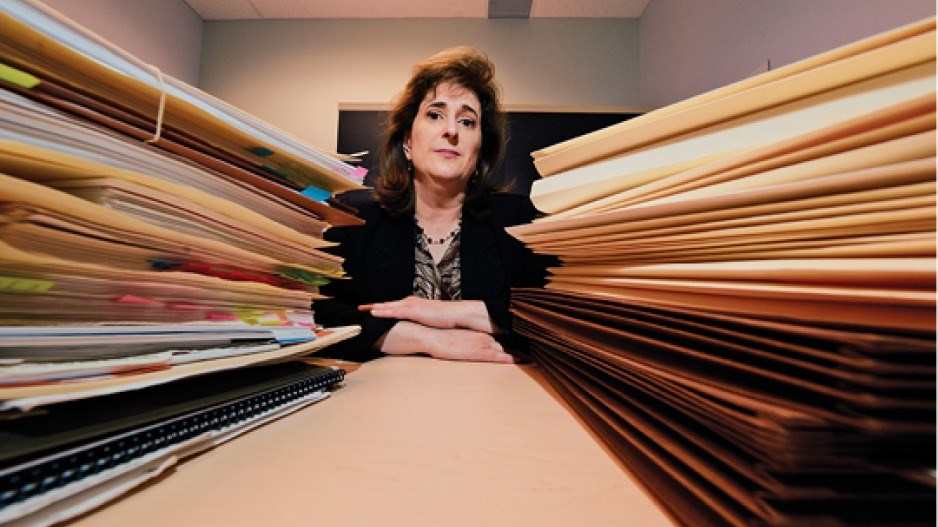One morning, Rochelle Morandini ended up in the emergency room of Surrey Memorial Hospital because she thought she was having a stroke. In reality, a neurologist told her, she had reached an extreme level of exhaustion that could eventually lead to depression and a higher level of anxiety.
Morandini took time off to take better care of herself and changed jobs. She is now a partner of Morneau Shepell, a human resources consulting company.
“I had to learn how to monitor myself, how to set those boundaries and to take that time for myself, which is still a challenge,” she said.
Levels of workplace burnout and anxiety are rising due to increased pressures at work and expectations to always be available through technology, according to psychologists and human resource experts.
“We have things coming at us so quickly, so constantly, that we’re not taking that time anymore to shut down,” said Morandini.
Cissy Pau, principal consultant of Clear HR Consulting Inc., said work is becoming more stressful because many employees are constantly on their smartphones, and checking work email while away from work has become normal.
“You get into the cycle and don’t realize until it’s too late,” said Pau, adding that work and home lives have become too blended together.
According to Morandini, it is important to set parameters both at work and in life in order to create boundaries.
“I was a very highly engaged, really productive employee,” said Morandini. “But I lived on adrenaline for two years at least.”
Being self-aware is a crucial part of managing stress and avoiding burnout, said Douglas Adams, a Vancouver psychologist.
“People have to recognize the early stages [of burnout] and resolve the problems early,” said Adams. “Once they’ve entered burnout, it’s difficult to resolve.”
Some warning signs are fatigue, irritation, little patience, trouble concentrating and low energy, said Morandini.
According to Adams, people who are in the early or middle stages of their careers are more prone to burnout.
“They’re more likely to think that their energy doesn’t have an end,” said Adams.
To avoid getting to that state, Adams said it is important to manage time well; if free time is given up because of a crisis or job requirement, then employees should be prepared to stand up and take time off to make up for it.
Workplace burnout and depression affects both the employee and the employer, said Adams. Employers end up with ineffective people, or people having to go on sick leave, sometimes for extended periods of time. For the employees, Adams said burnout can impact and impede how happy and productive people are.
Morandini said although resources tend to be devoted to mitigating the effects of poor mental health in the workplace, it is important to also proactively promote the benefits of good mental health. She works with employers to educate them on combining mental and physical health.
“We look at ways to strengthen people’s psychological health ... just like we improve their physical health to improve performance.”




